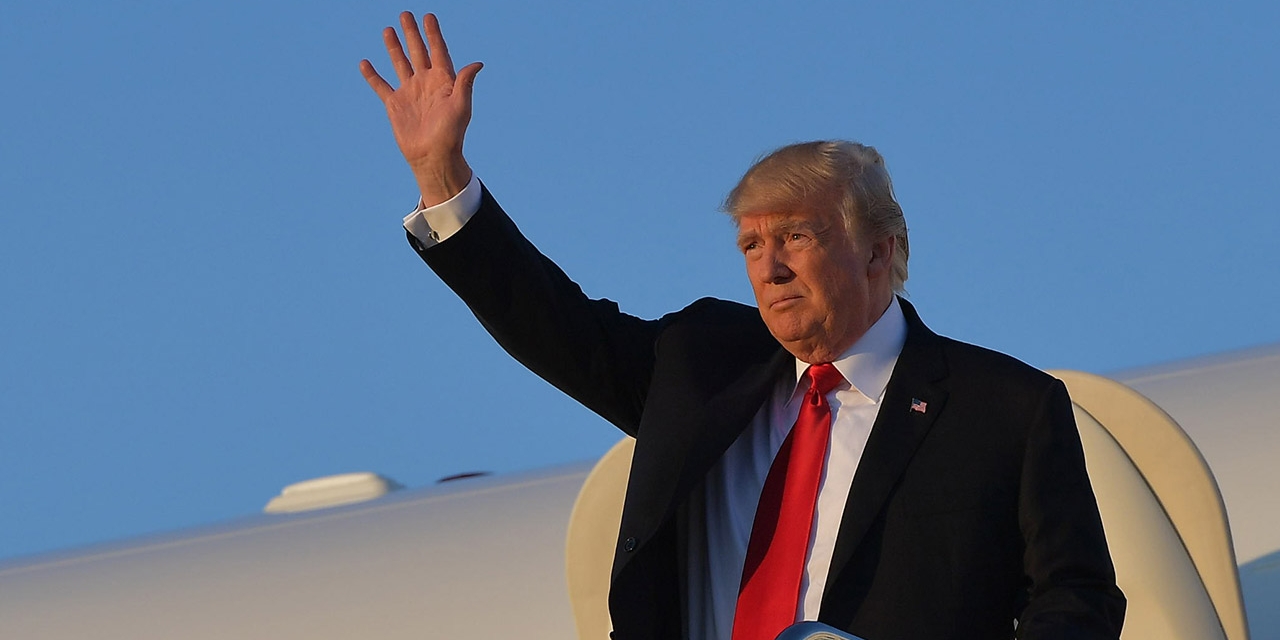Could Donald Trump be declared „unfit for office“?
Von Steve Crilley
After a flurry of angry tweets from Mr Trump, there is a lot of chatter now about the 25th Amendment. The hashtag #twentyfifthamendmentnow and #amendment25now are trending in social media. US expert Brian Klass told Reality Check how the process goes to remove a President who is deemed “unfit for office”.
Steve Crilley: Unfit for office (rather than impeachment), how would the mechanism work to remove a US President if they are deemed to be in no condition to continue being the Commander-in-Chief?
Brian Klass: In the 1960s, there was an amendment to the US Constitution, Amendment 25. It involves a way to remove a president from office without their consent. And specifically Article 4 of that amendment allows for a majority of cabinet members, plus the vice-president to say in writing that the President is unfit for office and they have to make that decision public and to transmit it to the speaker of the House (currently Paul Ryan) and the Senate’s President pro tempore (which is currently a Senator named Orrin Hatch).
If that happens, the vice President would immediately become acting President and that would be a temporary measure. But if the President disputes that, then he can actually say he is fit for office and then it would go to a vote and it would require a two-thirds vote in both Houses of Congress for the President to formally be removed from office and to make the vice-President, US President for good.
Amendment XXV
In case you want the full legal wording of Amendment 25, here it is courtesy of the Cornell Law School:-
Amendment XXV
Section 1.
In case of the removal of the President from office or of his death or resignation, the Vice President shall become President.
Section 2.
Whenever there is a vacancy in the office of the Vice President, the President shall nominate a Vice President who shall take office upon confirmation by a majority vote of both Houses of Congress.
Section 3.
Whenever the President transmits to the President pro tempore of the Senate and the Speaker of the House of Representatives his written declaration that he is unable to discharge the powers and duties of his office, and until he transmits to them a written declaration to the contrary, such powers and duties shall be discharged by the Vice President as Acting President.
Section 4.
Whenever the Vice President and a majority of either the principal officers of the executive departments or of such other body as Congress may by law provide, transmit to the President pro tempore of the Senate and the Speaker of the House of Representatives their written declaration that the President is unable to discharge the powers and duties of his office, the Vice President shall immediately assume the powers and duties of the office as Acting President. Thereafter, when the President transmits to the President pro tempore of the Senate and the Speaker of the House of Representatives his written declaration that no inability exists, he shall resume the powers and duties of his office unless the Vice President and a majority of either the principal officers of the executive department or of such other body as Congress may by law provide, transmit within four days to the President pro tempore of the Senate and the Speaker of the House of Representatives their written declaration that the President is unable to discharge the powers and duties of his office. Thereupon Congress shall decide the issue, assembling within forty-eight hours for that purpose if not in session. If the Congress, within twenty-one days after receipt of the latter written declaration, or, if Congress is not in session, within twenty-one days after Congress is required to assemble, determines by two-thirds vote of both Houses that the President is unable to discharge the powers and duties of his office, the Vice President shall continue to discharge the same as Acting President; otherwise, the President shall resume the powers and duties of his office.
We’ve seen some quite bizarre actions from Mr. Trump in recent days as he has been lashing out against members of the media yet again. Where is the red line when somebody says “enough is enough”?
Sadly I think it is about electoral calculations. The Republicans control both the House of Representatives and the Senate and the likelihood that they will turn on this President barring any major change is very low. I think that is because the 2018 mid-term elections are rapidly approaching in the American political calendar, and many Republicans have decided that they are tied to this President and that their fates go with him.
Removing Mr. Trump from office on their watch would have a major backlash among the Republican base. Many of them don’t want to roll the dice so, it’s also a political calculation for them. And having to get a two-thirds vote in both Houses of Congress is basically the same as an impeachment trial (the other mechanism to removing a President from office). Both systems at this point are extremely unlikely unless Republicans fundamentally turn on their own and devour a member of their own party.
Is there a precedent in history for what we are seeing currently?
We’ve never seen behaviour like this. Twitter is new but we’ve never had a president who seems to be condoning violence against journalists and repeatedly tweeting out fake news claims against legitimate news organisations and demonising the press.
In terms of (the process of ) impeachment, this has happened before but we’ve never actually had a president removed before through impeachment. Bill Clinton was impeached [in the House of Representatives] and that moved to a trial in the Senate [Impeachment, by the way is a trial process that could lead to the removal of a President; to “impeach” someone is to challenge or accuse them], and there the vote went against him being removed. Even further back, Richard Nixon resigned but was not formally impeached. And as far as Mr. Trump is concerned nothing is going to happen unless there is a change in the republicans political calculation.
Have questions about a president’s mental stability come up before?
It came up with Nixon at points. There were worries that he was unfit to be in charge of nuclear weapons. And there were schemings behind closed doors about whether or not they could quietly try to remove that power. That is why there is such a formal mechanism now (when it comes to the ability of a president’s removal). Also as a result of JFK’S assassination and the uncertainty that event produced, wandering who was in charge whilst he was on the operating table, so there is precedent for considering what to do and what can happen if a president is unfit for the office that he holds. But it’s never been this far down the road of mental stability questions where people in his own party are questioning whether he is all there!
Publiziert am 05.07.2017




















